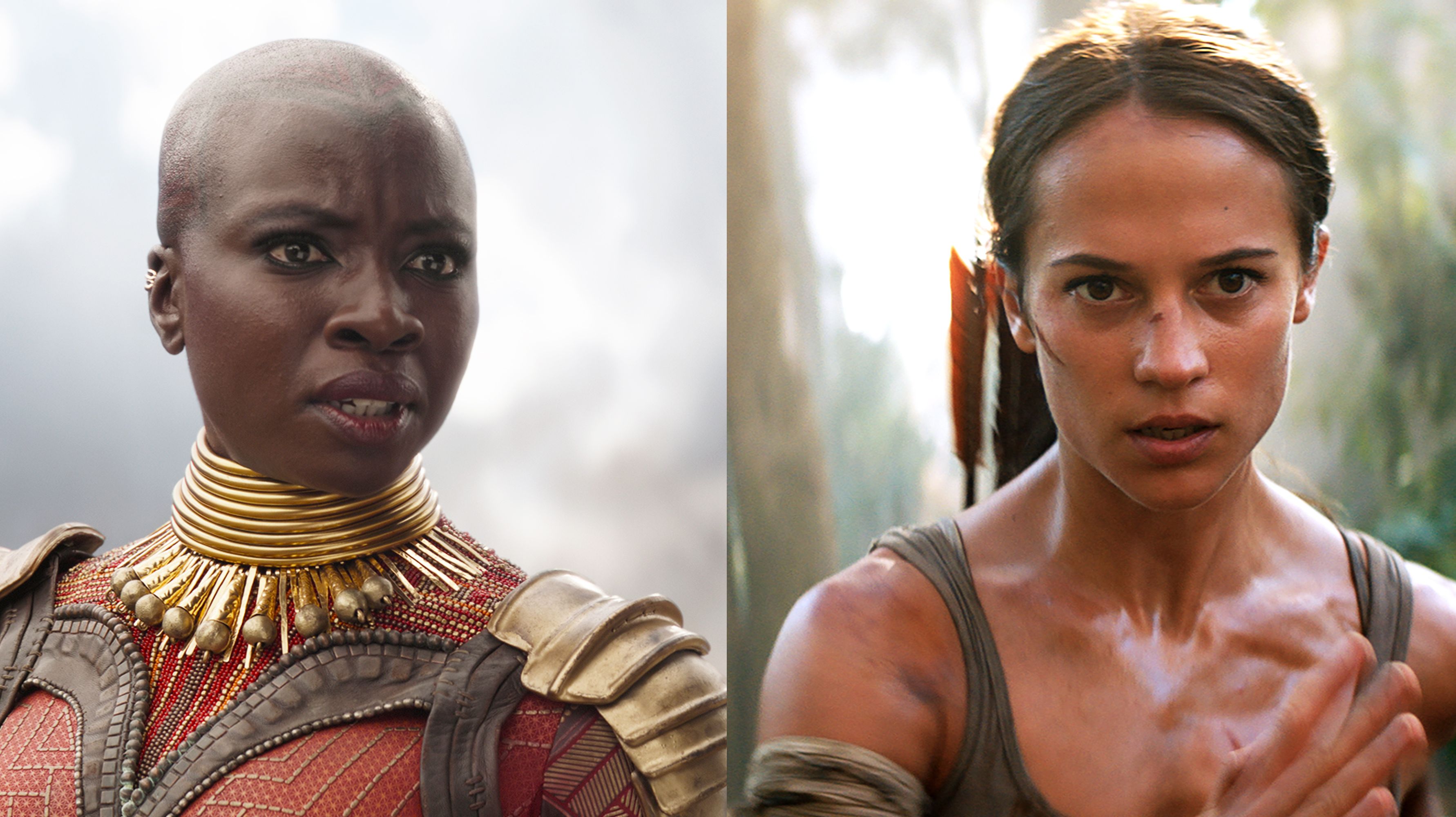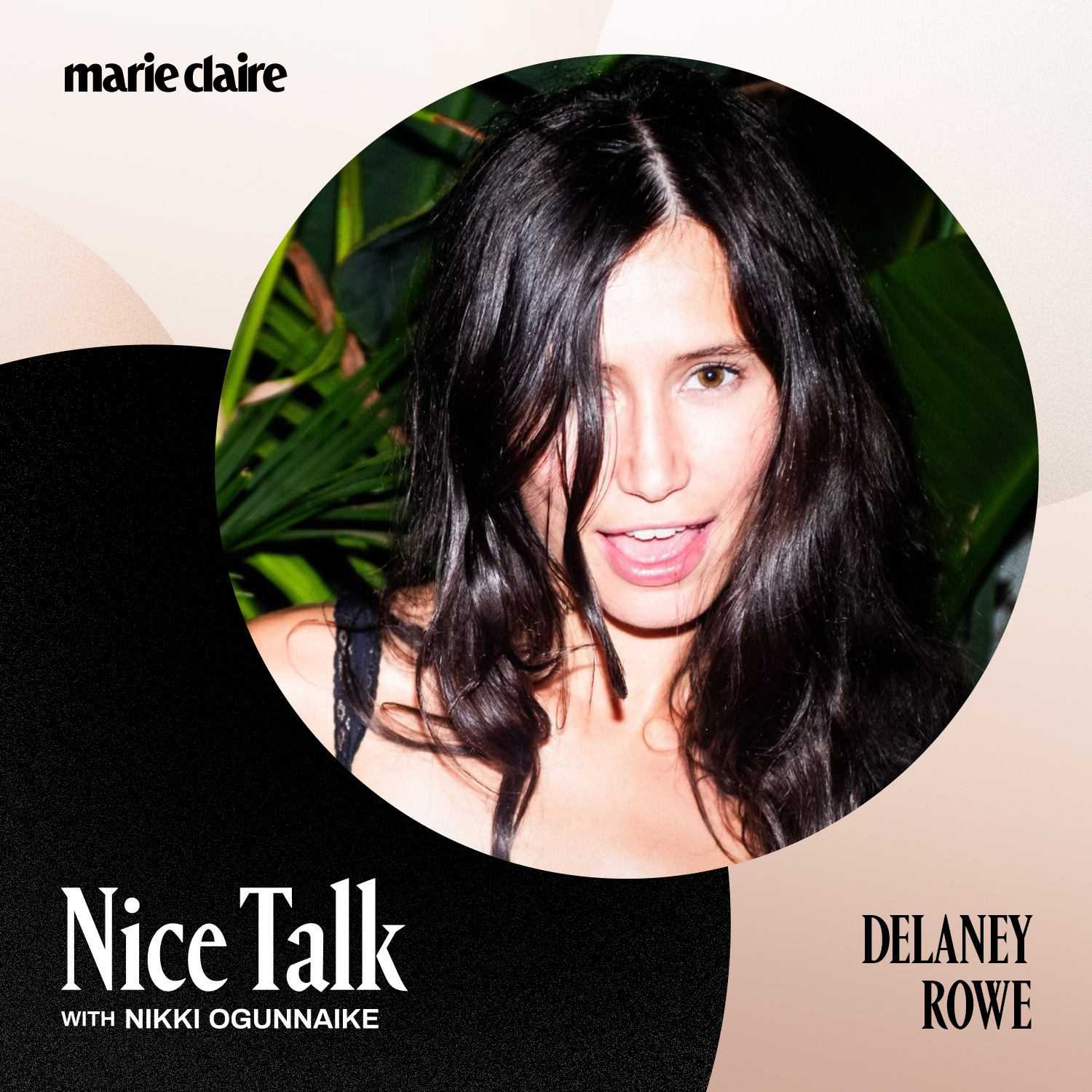Tessa Thompson Talks "Sorry to Bother You," Her New Sci-Fi Comedy Flick
This film will have you tripping (and, laughing out loud).
[image id='63fe83b8-aaf6-451d-8af8-bcaee76474ba' mediaId='f03c246d-5ffc-49ec-bdc9-039d49b35a22' align='left' size='medium' share='true' caption='' expand='' crop='original'][/image]
Everyone will be talking about Sorry to Bother You, the new dystopian drama about one man’s success and its dire consequences. The real hero? His girlfriend, Detroit—played by Tessa Thompson—an artist who sees through the BS.
Marie Claire: Sorry to Bother You is a brilliant, consciousness-raising acid trip of a film. How do you describe it to people?
Tessa Thompson: It’s a piece of magical realism set in Oakland, California, and the film explores what it is to keep your own integrity inside a space that pushes us toward this idea that we have to be something other than who we are to gain success. It sort of defies categorization, which is something that I found so exciting when I read the screenplay. I’d never encountered anything like it, and I’m not sure I will again.
MC: First impressions of your character, Detroit?
TT: I just love Detroit. She is an artist and a performance artist and somewhat uses herself as her canvas. She really feels like you’ve got to walk the walk that you talk, and I think particularly in this era where activism is so available to us with a retweet or a “like,” she is someone who thinks you have to live with the ideals that you are behind. She challenges Cassius [her boyfriend, the film’s protagonist, played by Lakeith Stanfield] to do that. And the screenplay was so singular and unique that we tried to create a look for Detroit that felt like it hadn’t been done before. Although Oprah in A Wrinkle in Time gave me a run for my money.
MC: We have to ask, did you get to keep the earrings? [Detroit wears flashy oversize earrings in the shapes of electric chairs, penises, and more.]
TT: First of all, I want to be totally honest— they are not the most comfortable to wear because they are really heavy. But something we were aiming to do was create an iconography around this woman that people would want to participate in and wear, so I didn’t keep the earrings because they needed to make prototypes for them to be re-created. Our hope is that people upon watching the movie will want to own these pieces. We see the intersection between fashion and activism, and it’s the right time for people to be interested in using what they wear as a way to speak about their beliefs. Detroit uses the way she dresses as real, true self-expression.
In this era where activism is so available to us with a retweet or a 'like,' she is someone who thinks you have to live with the ideals that you are behind.
MC: One of the film’s loudest messages is the slyness that systems of oppression possess. You don’t notice you’re being oppressed when you think you’re benefitting in some way; you’re unaware of the harm being done.
TT: We can enslave ourselves to things that we think give us freedom. Social media and technology, for example. We have everything at our fingertips, and we think that it makes us more free, when in fact there are days where I feel way more free when I shut all of that off. Certainly, talking about big business and how it can be exploitative of us, particularly for black artists and artists of color not having ownership—that’s something that is sort of thematically inherent in Sorry to Bother You. Cassius literally effects this old-white-man voice [as a telemarketer] and makes it to the top of this corporation only to figure out that he’s basically in servitude of something that is totally exploitative of not just him but all humans. It’s a really fun summer movie, but if you can walk away thinking about those things too, then that’s great.
This article appears in the July issue of Marie Claire, on newsstands now.
Stay In The Know
Get exclusive access to fashion and beauty trends, hot-off-the-press celebrity news, and more.
RELATED STORY

As deputy editor, Jen oversees Cosmopolitan's daily digital editorial operations, editing and writing features, essays, news, and other content, in addition to editing the magazine's cover stories, astrology pages, and more. Previously, Jen was a senior editor at Marie Claire. Before that, she worked at GQ.
-
 The "Frightening" Easter Prank William Played on Eugenie
The "Frightening" Easter Prank William Played on Eugenie"Prince William has just stood on a chair and bitten the mouse's head off."
By Amy Mackelden
-
 A Resurfaced Photo Reveals Charlotte's Royal Lookalike
A Resurfaced Photo Reveals Charlotte's Royal Lookalike"The Spencer genes are so strong."
By Amy Mackelden
-
 Why Prince Andrew Attended Royal Family's Easter Service
Why Prince Andrew Attended Royal Family's Easter ServiceIt was previously alleged King Charles's "patience was wearing thin" with his brother.
By Amy Mackelden
-
 Eva Mendes and Ryan Gosling Introduce the "Newest Member" of Their Family
Eva Mendes and Ryan Gosling Introduce the "Newest Member" of Their Family"I'm crazy about her and excited to share life."
By Amy Mackelden
-
 Jennifer Garner Is Reportedly Ready to Cut Ties With Jennifer Lopez, Unless Their Kids Are Involved
Jennifer Garner Is Reportedly Ready to Cut Ties With Jennifer Lopez, Unless Their Kids Are Involved"Her friends feel she shouldn't have allowed herself to get so involved."
By Amy Mackelden
-
 Hailey Bieber Shares Her First Photo of Baby Son Jack Blues Since Giving Birth—See the Sweet Shot
Hailey Bieber Shares Her First Photo of Baby Son Jack Blues Since Giving Birth—See the Sweet ShotSo freaking cute.
By Quinci LeGardye
-
 Actors Who Are Nothing Like Their Most Iconic Characters
Actors Who Are Nothing Like Their Most Iconic CharactersTalk about awards-worthy, transformative performances.
By Katherine J. Igoe
-
 The Question on Everyone's Lips: Did Beyoncé Skip the 2024 MTV VMAs?
The Question on Everyone's Lips: Did Beyoncé Skip the 2024 MTV VMAs?It's been a few years since she last graced the carpet with her presence.
By Kelsey Stiegman
-
 Why Isn't Selena Gomez at the 2024 VMAs?
Why Isn't Selena Gomez at the 2024 VMAs?Her absence became even more noticeable after her bestie Taylor Swift showed up.
By Hanna Lustig
-
 Jennifer Lopez Thought Ben Affleck Was a "Changed Man" But Being Married to Him Was "Impossible"
Jennifer Lopez Thought Ben Affleck Was a "Changed Man" But Being Married to Him Was "Impossible""Friends think he is selfish, sullen, impossible to please most of the time and negative."
By Amy Mackelden
-
 Delaney Rowe Reveals Which of Her "Genuine Heroes" Have Told Her They Love Her TikToks
Delaney Rowe Reveals Which of Her "Genuine Heroes" Have Told Her They Love Her TikToksThe content creator spoke to editor-in-chief Nikki Ogunnaike for the 'Marie Claire' podcast "Nice Talk."
By Sadie Bell
